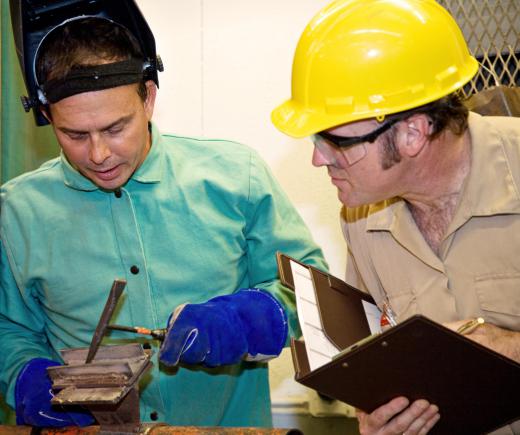At AboutMechanics, we're committed to delivering accurate, trustworthy information. Our expert-authored content is rigorously fact-checked and sourced from credible authorities. Discover how we uphold the highest standards in providing you with reliable knowledge.
What Are the Different Types of Process Control Systems?
Process control is a term that is used to describe the different methods applied by producers and manufacturers in the production process with the aim of making sure that the whole production and manufacturing process follows a consistent pattern that leads to the an expected outcome. In other words, process control is used to ensure a kind of uniformity of output. Process control systems refer to those systems used by manufacturers and producers to achieve this purpose and include statistical quality control, sequence controllers, supervisory control and data acquisition systems, and distributed control systems.
These types of process control systems are mainly mechanical equipment designed to aid in the control system. Some of them function as electronic components that play a key role in the control process, which may include assisting in startup operations. The startup operations refer to the processes involved in starting the production process after a shutdown. An example of this is a breakfast cereal production company that periodically engages in a complete shutdown, while some maintenance process or housekeeping is performed on the machinery used in producing the cereal. Another application of process control systems is the type of equipment that serves as automatic measuring and gauging systems that apply process control to the product as it is moving along the production line.

For instance, if the product is soft drinks, this type of control system will monitor the whole process starting with setting the correct temperature for the product, measuring the ingredients, checking the bottles or cans for defects, ensuring that the caps are properly placed on the bottles, and making sure that the bottles are placed in their boxes in the correct order. Some of the process control systems serve in a sort of supervisory or a monitoring capacity to the other systems in the sense that such systems track the performance of other process control systems to ensure that they are working perfectly and according to the stated schedule

Where there is any identified default in any of the process control systems, the main control systems will shut down that particular system and sound some kind of alarm or signal to indicate that there is a problem somewhere along the production line. Another type of process control involves a kind of service that occurs at the end of the manufacturing process, which is geared toward checking the finished product to ensure that it is up to standard and lacking in defect.
AS FEATURED ON:
AS FEATURED ON:














Discuss this Article
Post your comments